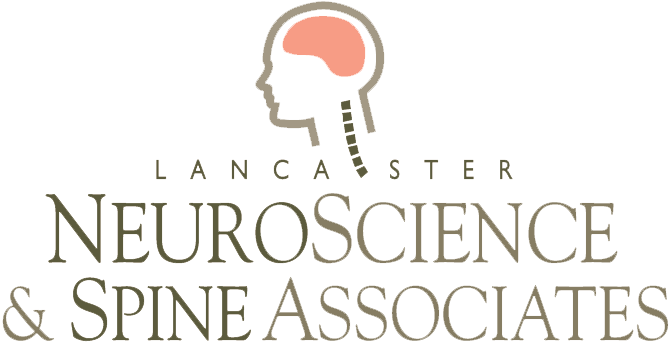Physicians with Diverse Backgrounds share a common approach to Patient Care
Dr. Eddy Garrido is Co-Medical Director, Lancaster General Gamma Knife Center
One herded cattle and baled hay on his family’s Illinois farm, another won the NY state science fair. One spent his childhood in the Dominican Republic, another was a military brat who became a colonel. One fled Saigon as a child, another was a student athlete and valedictorian. All had a common goal to become a doctor.
Today their diverse backgrounds and medical excellence in brain and spine care are in harmony at Lancaster NeuroScience & Spine Associates. Drawn here by the strength of the health care community and their like-minded approach to medicine, they have built an enduring team in their years of working together.
When Keith Kuhlengel was growing up on a farm in southern Illinois, he applied the same uncompromised focus to earning academic honors as he did to bringing in a harvest. His desire to help people, coupled with the need for physicians in the rural Midwest, drew him to medicine and the specialty of neurosurgery. “I have a very broad mix of patients, and my goal is to treat each one the way I would want a member of my family to be treated,” he said.
Dr. Keith Kuhlengel is Chief of Neurosurgery, Lancaster General
Agriculture was also familiar territory to Dr. Eddy Garrido, who spent his first ten years on a farm in the Dominican Republic. “I never considered being anything other than a physician,” Dr. Garrido said. “I believe that it’s very important to spend time really listening to patients, understanding their complaints, and attending to all of their medical needs.”
Dr. Chris Kager excelled in soccer and football in high school and was valedictorian of his class. His affinity for learning and competitive sports continues. He is an advocate for children’s safety with Think First, a national group that educates youngsters about safe behavior to prevent head and spine injuries. “The key to treating patients is a combination of our training plus our cumulative experience,” he says, “because with experience comes a more total and compassionate view of each patient.”
Neurosurgeon Dr. John Gastaldo’s passion for science and computer technology led him to build a computer that won the New York State Science Fair in his teens. Now his pursuit of science has a more human aspect. “In the process of being there for my patients, I have leaned an enormous amount,” he says.
“Making a good diagnosis is critical, “ Dr. Bill Monacci said. For five years before coming to Lancaster, Dr. Monacci held the rank of Colonel, and served as Neurosurgery Consultant to the Army Surgeon General. “Most of our patients do not go on to have surgery, he explained. “It is the last tool in our arsenal unless the need for it is clear, but far more often, we use non-surgical therapies to alleviate pain and restore mobility,” say Dr. Monacci.
Those non-surgical therapies are the domain of the two physiatrists of the group. “Most patients come in with back pain that they’ve had for weeks, months, or years,” said Dr. Elliot Sterenfeld, a Physiatrist and Medical Director of the their Center for Spine Care. “Many think, ‘I’ve got back pain, there’s nothing I can do, I just have to live with it’,” he said. “But in many cases there’s a lot that we can do non-surgically that dramatically improves their quality of life. That’s where physiatry comes in.”
Dr. Tony Ton-That, Physiatrist and Medical Acupuncturist, reiterates the need to look at the total picture. As a child he experienced the fall of Saigon, and he recounts that “everything was threatened, not just our education, but our very survival.” Out of that experience came his determination to help people and his choice of a medical specialty that requires keen attention to the details. “My parents’ strong emphasis on education influenced and motivated me,” he says. “As a physiatrist, I find it rewarding to develop a personal relationship with patients. If I can help the patient get better, the whole family will be better,” he concluded.
The solidity of Lancaster NeuroScience & Spine Associates is based on the moderate approach to patient care that is common to the eight-member group. They have deliberately balanced their practice to be a multi-disciplined group that focuses on non-surgical solutions whenever possible.
“We are getting better at determining the origin of pain in a patient with a particular spinal disorder and developing less destructive methods for treating brain disorders,” Dr. Monacci explained. “Tumors that were once thought untreatable are having increasingly successful outcomes. We have at our disposal locally the latest in technical innovations to apply to our patients’ problems,” he continued. “The ability to treat serious spinal and cranial problems is on par with any major medical center in the country.”




